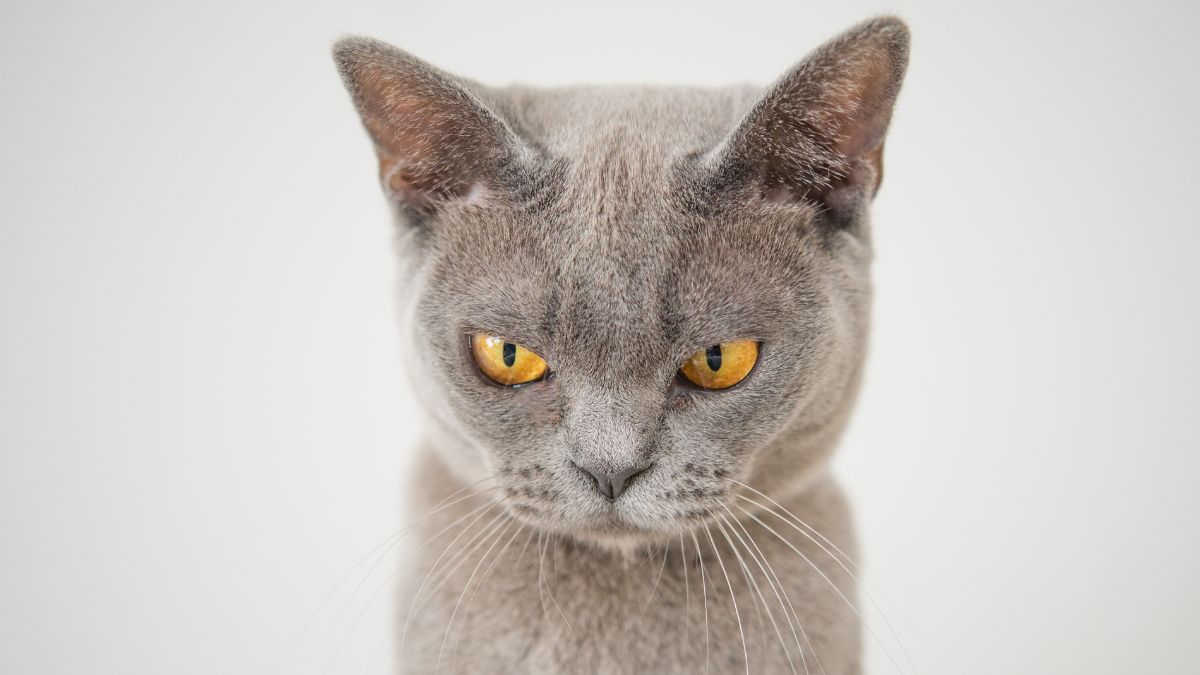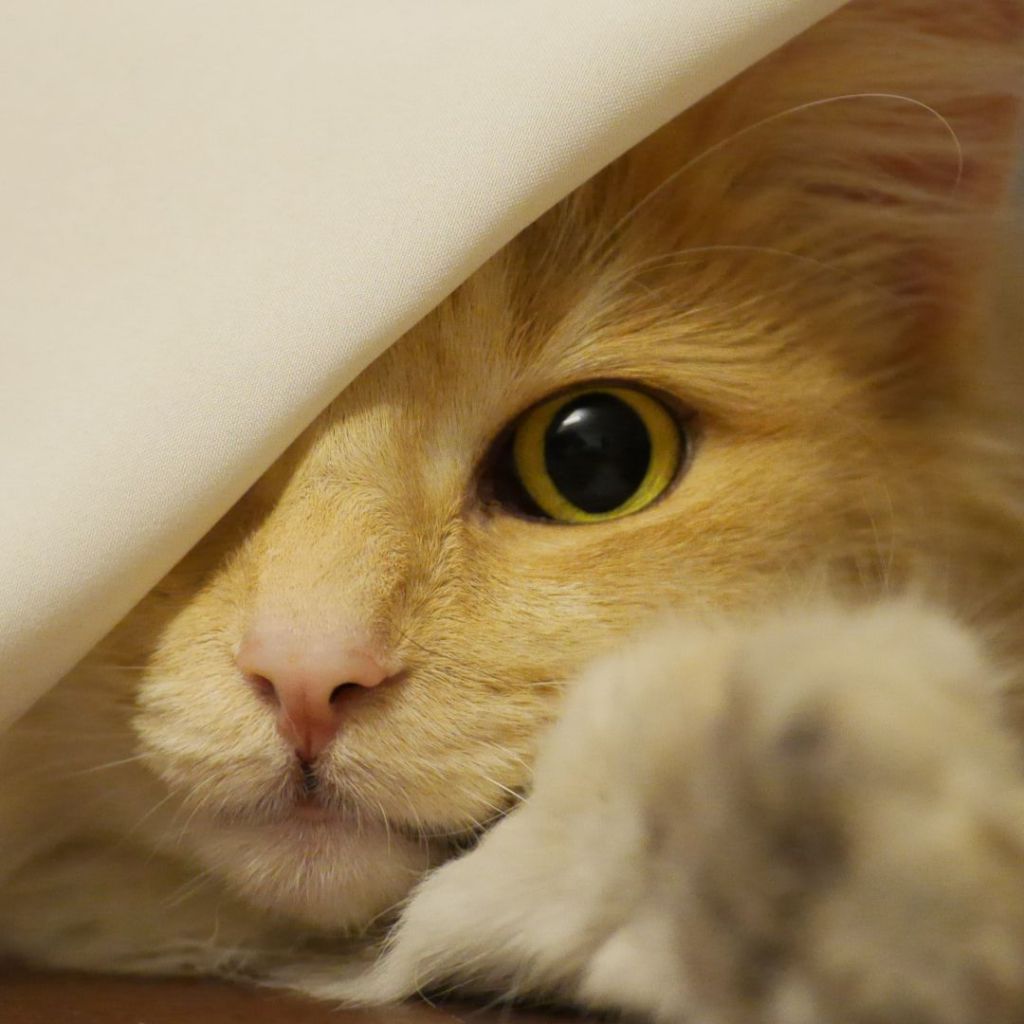
Do Cats Sulk? How to Spot an Upset Cat (And What to Do About It)
12 Jan 2024.
Cats often have the reputation of being aloof and stand-offish. However, our feline friends can exhibit a wide range of emotions. Your kitty will reveal how they’re feeling in different ways, whether it’s by approaching with an upright tail to show happiness, or hissing when they’re upset. But what about sulking? Do cats sulk like we do? Cat in a Flat finds out!
Table of contents

How do cats show emotion?
Just like humans, cats can experience a range of emotions including happiness, sadness, anxiety, or anger. And yes, cats can even sulk! Mr Whiskers’ brain is wired to respond to various stimuli around them and react accordingly. For example, if your furry friend is in a safe and familiar environment (such as at home), they will exhibit happy and content behaviour. Likewise, if your kitty experiences an upsetting or traumatic event, they will remember it and may react in a fearful or anxious way when triggered by the memory.
Signs your cat is happy
- Purring. Most paw parents know that a purring kitty is a good sign! However, while purring usually means your kitty is feeling content, some felines may purr if they are injured, in pain, or stressed.
- Chirping. Not all felines chirp (or chirrup), but if yours does it’s a sign that Mr Whiskers is in a happy mood. Your kitty might chirp to signal they want you to follow them somewhere, or to let you know they’d like affection or quality play time.
- Meowing. Did you know that cats don’t meow at each other? This vocal verbalisation is reserved for us humans. A happy kitty will meow and chat with their humans.
- Slow blinking. One of the best (and cutest) signs of a happy kitty is when they give you a ‘cat kiss’. If Mr Whiskers makes eye contact and slowly blinks at you, they’re letting you know they’re feeling content around you!
- Sleeping. Generally, a happy cat will want to spend some of their sleeping time with their human—whether it’s napping in your lap, sleeping in bed with you, or just dozing next to you on the sofa.
- Interaction. In short, a happy cat will want to be around you (and talk to you too)!
Signs your cat is sulking
How do you know if your cat is sulking? If your kitty suddenly becomes shy or withdrawn and doesn’t want to spend time with you, these could be signs of a sulking cat. Keep an eye on your feline’s bathroom, eating, and playtime habits. If Mr Whiskers starts peeing outside the litter box, has a change in appetite, or loses interest in play, they could be depressed or upset.
Signs your cat is upset
- Litter box upsets. Peeing outside the litter box is on of the first signs a cat may be sulking, anxious, or upset. Make sure you prioritise litter box maintenance by cleaning it once a day and emptying out and replacing the litter every few weeks.
- Appetite change. A content cat will have a good appetite and enjoy their food. A sulking cat may experience a loss of appetite or overeat. To avoid this, try to feed your cat on the same daily schedule.
- Oversleeping. Felines sleep a lot, but there is a difference between the snooze habits of a lethargic, depressed kitty and a content one. If you think your cat is sleeping more than 20 hours a day and they are low-energy when awake, you may need to take them to the vet.
- Hissing or growling. Just like a happy feline will meow, purr, or chirp to show they’re content, a sulking cat will vocalise when they’re upset. This can include hissing, growling, or yowling. If your feline does this, immediately give them some space. Cornering them will only increase Mr Whisker’s anxiety.
What will cause a cat to sulk?
What causes a cat to sulk? There can be many factors that lead to a cat sulking. This can range from feeling ignored, a change in environment, or health issues. It’s important to remember that a feline will only withdraw, hide, refuse to interact, or behave in a sullen manner if something is wrong. So, if your cat is sulking don’t ignore it; Mr Whiskers is trying to communicate that something is off.
Here are a few reasons why a cat might sulk:
Change in environment
Cats don’t like change and even the smallest shift in environment can upset your kitty. Moving house, a new pet in the home, or a change in routine can all be upsetting to Mr Whiskers. Your furry friend craves a steady schedule! This is why it’s best to stick to the same daily routine and introduce changes gradually so your kitty can adjust.
Worried about maintaining your cat’s routine (and keeping them stress-free) whenever you’re away? Instead of boarding your furry friend, hire a cat sitter to come in and look after them in the comfort of their home. A trustworthy sitter will accommodate to your kitty’s unique routine and make sure they get all the love and affection they need while you’re away.
Conflict with other pets
If you have a multi-cat household, it’s probably not uncommon for there to be the occasional conflict. These can happen when felines are competing for the same territory and resources. A cat may start sulking if they feel bullied or ignored. So, make sure to give each kitty in your household enough attention. Play with and cuddle them separately, but also try to strengthen their bond by encouraging your furry friends to play together.
You can also avoid fights and bullying by ensuring your furry friends have access to enough resources around the home. This includes separate food and water bowls as well as multiple litter boxes (the general rule is one per cat plus one more). Also provide several water sources, beds, toys, and scratching trees for your cats.

What should I do if my cat is sulking?
You should never ignore a sulking cat. Your fur friend is trying to tell you something is wrong, and you need to react accordingly. Here are a few ways you can help when your cat is sulking:
Create a safe environment
Your kitty needs safe spaces where they can go when they feel upset or insecure. This can be a cosy bed in the closet, or the top of a scratching tree. The point is, your feline needs a place where they can curl up and relax. Providing vertical spaces for your kitty to climb and keeping litter boxes clean are a few other ways to create an environment where your fur friend feels at ease.
Encourage positivity
Just like you enjoy feeling loved and appreciated, your cat does too! Your cat may be sulking if they feel ignored, bored, or frustrated. So, show your kitty that you love and appreciate them by spending quality time together. Cuddle and play with Mr Whiskers daily. Make sure your kitty feels engaged and stimulated with interactive toys. And encourage positive reactions by providing treats and rewards after each cuddle or play session. You can also reward your feline when they engage in pawsitive behaviour such as using their scratching posts (instead of your furniture) or coming when you call.
Address health issues
If these tips aren’t working, then it’s possible your cat is sulking due to a health issue. If you suspect this is the case, make an appointment for a vet check-up right away. Your vet can look for health issues such as food allergies, feline diabetes, arthritis, or urinary tract infections. You can also ask for tips from your vet on how to help your feline’s overall health with a balanced diet and exercise routine.
Looking for more tips on cat behaviour? Check out our blog posts on how to stop your cat from waking you up at night, and what to do when a cat refuses to eat or drink.
- #cat behaviour
- #catinaflat
- cat emotions
- do cats sulk
- sulking cat
- upset cat
